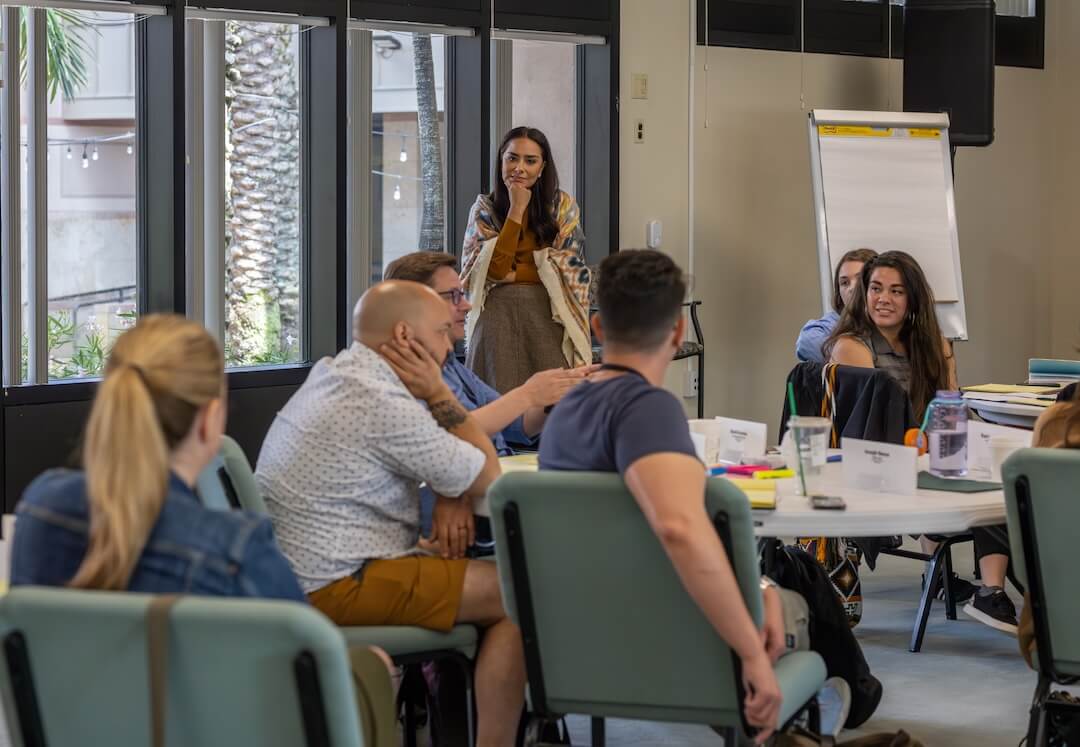One year at Christmas, Mary McGreevy’s family went around the table and shared headlines for their obituaries. McGreevy’s mother, who worked as a journalist, journalism professor and later a personal historian, thought her own headline should read that she “never got hair right,” McGreevy said. “That’s completely me now.”
She is getting TikTok right, though.
McGreevy, a Minnesota-based video producer, took her love of obituaries and the lessons she finds between the lines and created Tips From Dead People, an account with more than 20,000 followers.
“It’s been in my blood for a long time,” she said, “and I’ve always, always, always been an obituary reader.”
From years of reading obits, McGreevy would see details about a person’s life and want to know more.
“You make these assumptions and you have these questions about the stories that aren’t told,” she said, “And then when you get older you realize the stories aren’t told because they’re too expensive.”

Screenshot, TikTok
McGreevy reached out to me after she came across the work I’ve done around reported obits. I’m also still writing obituaries for the Tampa Bay Times, and I write a weekly newsletter about obits.
Before we talked, I fell into the TikTok hole with Tips From Dead People and told McGreevy that I wished I’d thought of it. I still do.
“What I like about them is that it sort of gives me little insights on what is ‘the good life,’” she said.
They can be irreverent, like Travis, “cause of death: pure stubbornness.”
They can be funny, like Renay, who “didn’t cook, she didn’t clean, and she was lousy with money, too. Here’s what Renay was great at: dying her red roots, weekly manicures, dirty jokes, pier fishing, rolling joints and buying dirty magazines.”
And they can be inspiring, like John, who served in the Army and died in Vietnam. He wrote his own obit one year before he died. “The Army let me live in Japan, Germany and England, with experience in all of those places that others can only dream about. I have skied in the Alps, killed a scorpion in my tent camping in Turkey, climbed Mount Fuji, visited the ruins of Athens, Ephesus and Rome, gone to the opera in Munich, plays in the West End, seen the Oxford-Cambridge Rugby match, gone for pub crawls through the Cotswolds, seen the nightlife in Hamburg and earned a master’s degree in a foreign university.”
McGreevy is also the co-founder of Epilogg, a free online platform for people to publish stories, photos and memories of their loved ones.
“As anyone who has written an obit knows, you are quickly confronted with the Business of Death,” the site’s About Us explains.“ The cost to submit an obituary in the U.S. is hundreds of dollars for one day … and what you get is a cold, incomplete snapshot of a full and vivid life. Social media hasn’t provided a permanent and decent alternative to the newspaper obit … We knew all along that there is a better way to get the word out about a death and celebrate a life. Using our experience with web development, digital storytelling, and start-ups, we dug in.”
Think The Knot for death, McGreevy said. So far it has about 3,000 tributes.
There’s space out there for thinking in new ways about obituaries, McGreevy told me, and it goes beyond local newsrooms embracing them as great stories again. She’s not the only one thinking about this.
Steven Waldman, whom you may know from Report for America and now the nonprofit Rebuild Local News, previously created a platform called LifePosts, meant to be a place to mark births, deaths and everything in between. I’ve also had a few calls with Ari King, the founder of Homage, which takes an audio approach to sharing life stories.
And while paid obits still make big money for newspapers, a handful of publications are starting to publish them for free, including Richland Source, Ashland Source and Knox Pages in Ohio, according to a Nieman Lab piece from last year, and Berkeleyside and The Oaklandside in California.
I’m guessing we’ll see more of this, especially from newsrooms that don’t already rely on the revenue. Free obits can build loyalty with a community, and they mean that anyone can submit one without worrying about the cost. That means obits sections could better reflect the place where they’re published.
“You shouldn’t have to be rich or famous to have your story in a public space and to tell the world that you matter,” McGreevy said.
Over on TikTok, she’s sharing life lessons, big and small, from the dead. It’s a way she’s staying connected to what matters to her the most about obits – that people’s lives mean something.
“And now I don’t have to be employed by a newspaper or a magazine to say something about it.”
This piece originally appeared in Local Edition, our newsletter devoted to the telling stories of local journalists







